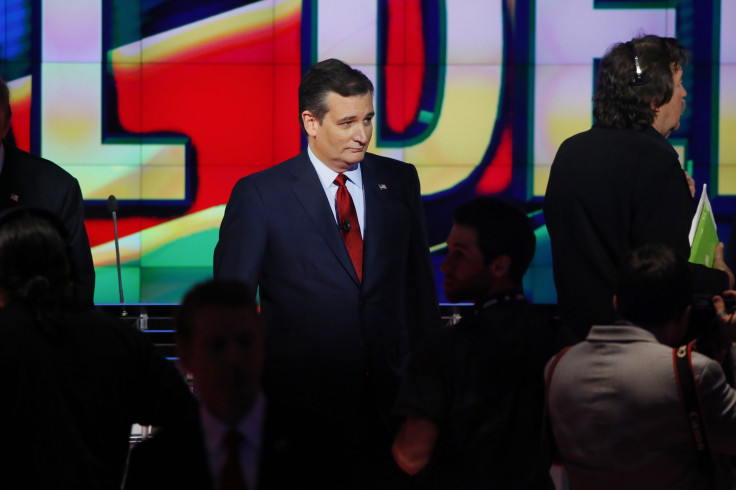Did Ted Cruz Reveal Classified Information? Senate Intelligence Committee Investigates After GOP Debate

Amid a heated exchange during Tuesday’s Republican debate in Las Vegas, Texas Sen. Ted Cruz may have revealed classified information on live, nationally broadcast television. The Senate Intelligence Committee, which is in charge of the information Cruz may have leaked, is looking into whether or not Cruz actually did give up any state secrets or if the information he revealed was already available, according to NBC News.
The exchange came while Cruz was arguing with Florida Sen. Marco Rubio about American surveillance programs that monitor phone records. Cruz, attacking Rubio, said that “the old program covered 20 percent to 30 percent of phone numbers to search for terrorists; the new program covers nearly 100 percent. That gives us greater ability to stop acts of terrorism, and [Rubio] knows that that’s the case.”
Rubio responded by noting that the number Cruz mentioned could be classified. “Let me be very careful when answering this, because I don't think national television in front of 15 million people is the place to discuss classified information,” he said.
Meanwhile, on Twitter, the communications director for the chairman of the Intelligence Committee wrote on Twitter that Cruz shouldn’t have said what he said. The chairman, Sen. Richard Burr, R-N.C., told reporters Wednesday that his committee was looking into whether or not the information Cruz referenced had been independently reported in any media outlets.
When asked by Roll Call, Cruz’s Senate office pointed to a 2014 Washington Post article that referenced similar surveillance figures to what Cruz had cited.
Cruz shouldn't have said that.
— Becca Glover Watkins (@beccaglover) December 16, 2015
The disagreement was over the USA Freedom Act, which replaced the Patriot Act in June. Cruz supports the USA Freedom Act, saying it opened up new types of phones that can be monitored like internet phones and cell phones. Rubio, arguing for the former system, said that the Freedom Act doesn’t allow security services to quickly access phone records to match them with other phone records and stop potential terrorist plots, according to Time.
© Copyright IBTimes 2025. All rights reserved.






















